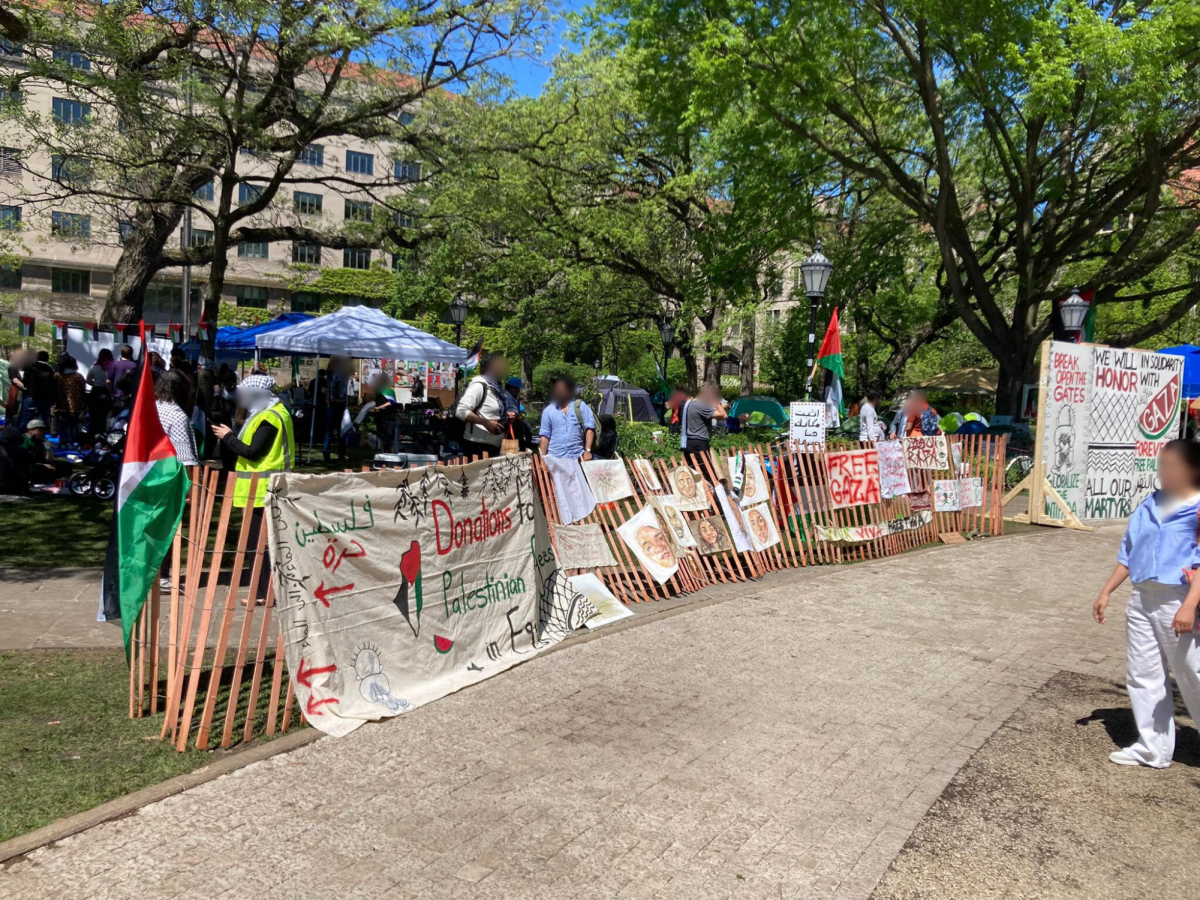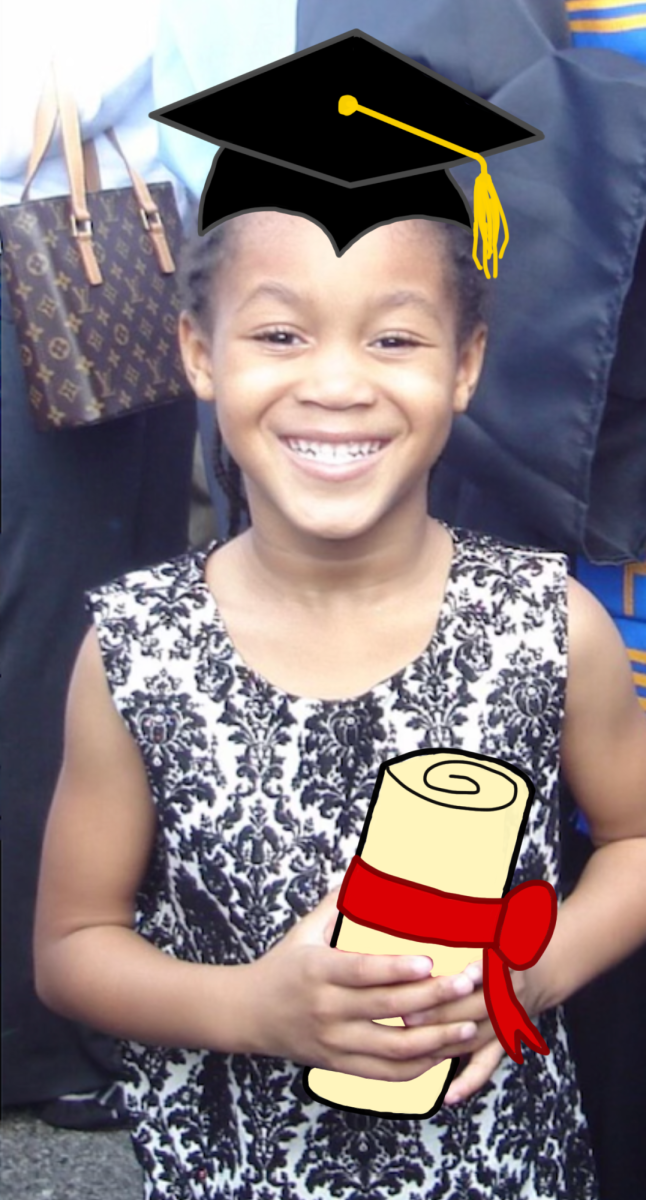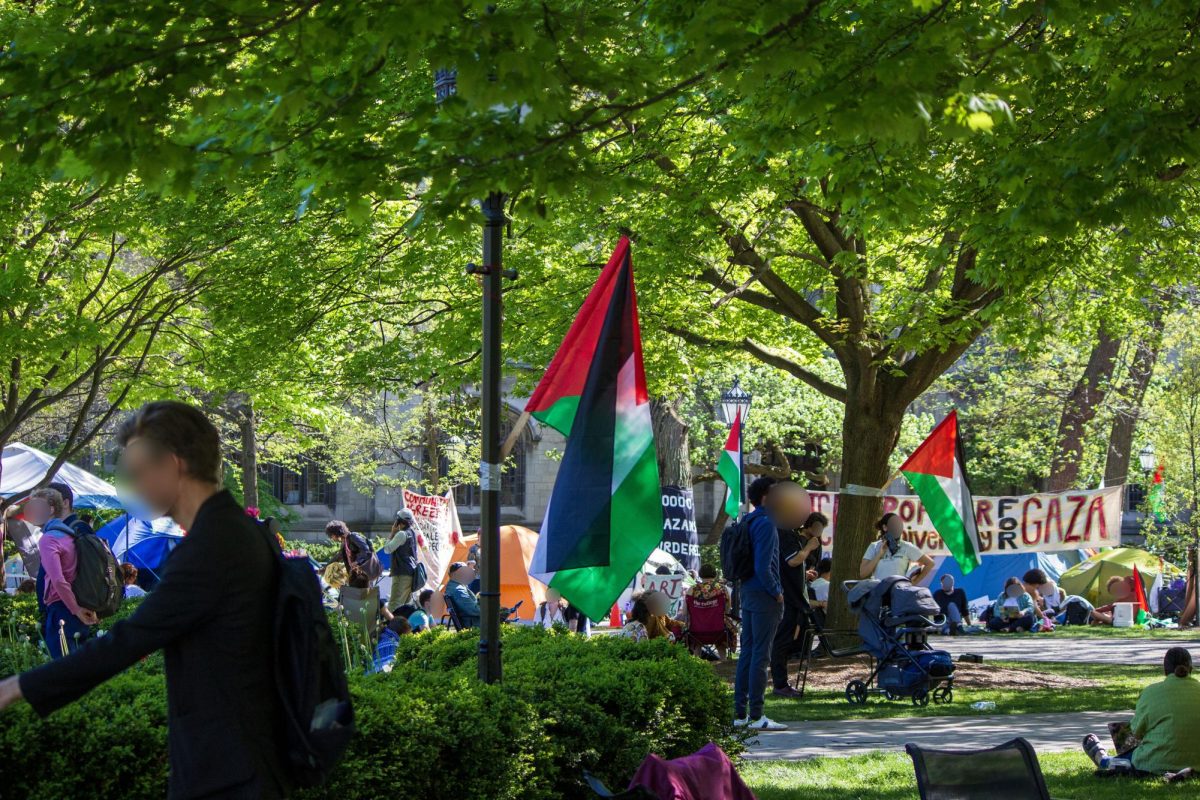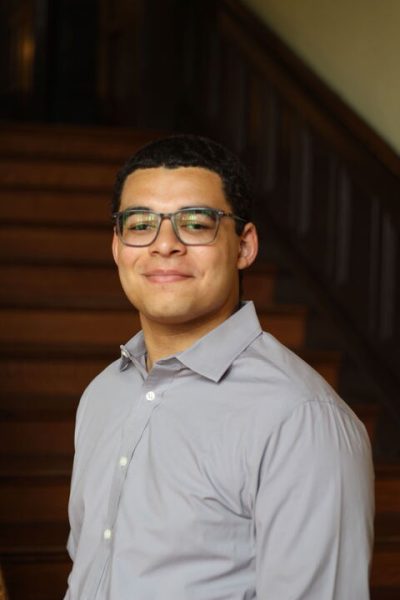Regardless of political beliefs, we can all agree that any loss of life is tragic and wish for a swift and peaceable end to hostilities in the Middle East. Each day I privately wish for the safe return of the Israeli hostages to their families and for the humanitarian conditions in Gaza and the West Bank to improve.
Separate from the sentiments above, as an alum, I find myself voyeuristically drawn into the events unfolding on the quad; they pale in comparison to the events transpiring in the Middle East, but it is possible to care about many things at once while acknowledging their relative scale.
I am a free speech absolutist, and I support forms of expression that don’t include incitement to violence. This position on speech is an important part of the Chicago principles. Though I theoretically support forms of speech that are illiberal, illogical, or misguided, I would like to share some of what I learned as a student at the University of Chicago (A.B. ’14) in hopes of engendering more productive debate at the encampment and beyond.
At the University, I studied sociology. A core part of my education was learning that the “deep looking” of sociology requires momentarily surrendering the part of looking that is tinged with judgment or opprobrium. Embracing a spirit of curiosity, even about people or matters we initially find revolting or morally degenerate, often leads to a useful widening of perspective and a more robust understanding. Like many truisms, this sounds ridiculous, but is in practice, profound.
On a practical note, it can be difficult to practice “deep looking” related to matters that touch on traumatic material, particularly if the object of our study relates to topics or events we find troubling. In my experience, the academic canon provides aid here too. There are great philosophical and spiritual traditions which aim at reducing emotional reactivity. We can also look to sociology as a field to find ideas on how other cultures create containers for collective grief, or how other societies employ rituals for catharsis or other pro-social outcomes. The goal of these practices is not to numb oneself against the world but to develop a sense of felt safety within the body so that one can return to the world refreshed and ready to engage with its many quandaries. In my view, it is from this grounded place of equanimity that we achieve our highest potential as moral agents in the world.
Employing these “deep looking” skills, I understand that in the view of the protesters on the quad, a genocide is occurring, that the endowment or research activities of the University implicitly support and enable this alleged genocide, and that schoolwork or “business as usual” are not important in light of the first two contentions. My understanding is that the protesters want the University to divest from Israeli concerns, that they want to express their distaste for a two-state solution, or both.
I would like to point out, obliquely, some of the ways in which I believe these contentions are misguided, stem from false premises, are illiberal, or not pragmatic.
First, is the conflict in Gaza a genocide, or is it an asymmetric war with high collateral damage? Is it some other kind of thing? I myself can’t answer that, but the question itself is not trivial, nor is it settled. This question is fundamental because it is the initial premise of the protest itself. One of the classes I took as an undergrad at the U of C was American Grand Strategy with professor Robert Pape. The class was a brilliant and disquieting introduction to American military strategy in the Cold War period and after. I learned about nuclear deterrence, the “realist” school of war (and peace) making, and various U.S. air-bombing campaigns of the 1990s. This class changed me in profound and unsettling ways. I remember thinking that the things I learned in Grand Strategy were a great and terrible burden, and that realism was perhaps an essential but dreadful outlook.
Before taking the class, I considered myself a pacifist. While I still believe that war is an abomination and a great tragedy (and best avoided via diplomacy), I also understand that in some cases it is inevitable, or that a nation-state’s willingness to use force can be an effective deterrent to incessant tribal conflicts. I would encourage the protesters to read about realpolitik and concepts like deterrence, asymmetric warfare, just war theory, military strategy, and to think about how all of these topics apply to current affairs.
Second, on the question of divestment—regardless of one’s political beliefs, this position is illogical. I would encourage the protesters to learn about concepts like “fiduciary duty” and “fund management.” Fund managers have a so-called “fiduciary duty” to maximize returns for their beneficiaries. While “ethical” investment vehicles are becoming more common, neglecting one’s fiduciary duty can open up the fund manager to legal liability or other consequences. The call for divestment from Israel betrays a misunderstanding on the activists’ part about how funds are structured and the limits of socially responsible investing. The topic is complex, and I’m not a financier, but investment vehicles are generally not organized around the concept of “relating to Israel” or “not relating to Israel.” Simply put, many funds invest in a type of security called an “exchange traded fund” (ETF). An ETF tracks the price of a bundled set of securities. For example, one can buy ETFs relating to semiconductors, commercial real estate, or emerging markets. Depending on how the ETF (or other investment vehicle) is structured, there will be little to no way of detangling or understanding how it does or does not relate to Israel.
Separately, since the protesters nominally do not believe in collective punishment, calls to divest from Israel, in addition to being impossible in practice, betray the protesters’ own expressed beliefs insofar as divestment damages ordinary Israelis’ livelihoods and academic prospects. Israelis are not their government any more than our own government reflects our personal desires and whims perfectly at all times.
Moral grandstanding can feel good, and it can be a sort of addictive pleasure in its own right, but in their addiction, the student protesters overlook basic and unavoidable facts about how the global financial system works and its limitations. It is possible that with time and effort one can become a lawmaker or litigator and attempt to change this, but this is a slow-moving and pragmatic course of action, best undertaken with a clear understanding of how the world actually operates.
Third, I understand that if the protesters believe they are witnessing a moral atrocity, they feel that it is their duty to protest this. However, I would like to encourage them: do not neglect your studies! My only regret from my time at UChicago is that I did not study even harder. The protesters may find with time and maturity that some of their demands were ill-formed (like the demand for divestment) or that the world actually is more complicated than they now believe. In my adult life I have not found any place that I love more than the U of C—it is a special place and one of the more intellectually exciting and humane places in the world. Please do not squander your opportunity to use the libraries.
Finally, though I believe in the right to engage in illiberal speech, there is the question of pragmatism. It is illogical and distasteful for a peace movement to call for an intifada, which is commonly understood to be a reference to the First and Second Intifadas, in which people in both Israel and Palestine died and each side expressed its viewpoint through violence, not speech. You cannot use this word and say that it does not really mean intifada or that it does not explicitly invoke painful and violent incidents from the past. Meaning is never something unilaterally imposed. Meaning arises in the space between conversational participants. A “peace movement” that calls for “intifada” is at best misguided and at worst, disingenuous. I myself support a two-state solution, owing to the cultural, religious and ethnic tensions that exist in the area and due to the fact that historically, Jews have been persecuted, murdered, or expelled from states in which we held a minority presence. Regardless of my personal views, however, I would like to point out that it is a form of Western chauvinism or American imperialism to believe that the U.S. has the right or the obligation to set policy for a sovereign nation-state halfway across the world. This chauvinism, in itself, is profoundly illiberal.
I hope this letter has convinced the protesters, or anyone reading, of the value of “deep looking,” or, if it hasn’t, that the protesters will continue to look after themselves and one another, and study hard. The world needs thinkers who can engage with complex and contested viewpoints, and an important part of negotiation (and life generally) is momentarily setting aside our personal views for “deep looking.”
Liz Denhup is a 2014 alumna of The College.
















Janis Froehlig / Jul 12, 2024 at 11:36 pm
I’m guessing there are is a UC grad writing an algorithm that determine what goes into a bouquet that is an ETF. It sounds simplistic, but I’m going to assert the only financial reality is, “I have it, and you don’t.” I’m also going to assert it’s the primary driver of most of the US’s political turmoil.
student / May 19, 2024 at 6:52 pm
Ohhhhh, I get it now!! I was concerned that my loved ones families were being slaughtered without care but I should have been concerned about the difference between “Genocide” and “an asymmetric war with high collateral damage”
This piece is a joke, and if you do not feel shame for it now, you will in the future.
StrongerMindedJew / May 8, 2024 at 12:23 pm
This is such an odd op-ed. Routinely cites “deep looking” but never cited anyone actually using that term to mark a robust methodology. According to the author, it’s some method of observation free from judgement. As the author demonstrates, this is impossible and undesirable. An observation IS a judgement: it is statement of what is and is not, not a report on appearances or intrinsically subjective experience (not to say that it unimportant, but observation implies objectivity).
Weirdly, despite all this emphasis on looking, the author spends little time actually looking at what the protestors believe, demand, and do. You had enough time to look up some sociology articles, but can’t be bothered to look up that the protestors have the clear demands of not just divestment, but also disclosing and repair (the issue of one-state/two-state is notably absent among the demands). You assume the protestors reject the associations of intifadah with the first and the second intifadah, when they have made no statement one way or the other. You assume Uchicago students, spending all day on the quad armed with books and print-outs, aren’t keeping up with their studies!
And yet we get purple prose paragraphs about your university experiences and a digression on ETFs (which again, ignore the protestors’ quite specific clarifications of what divestment is). You cite “fiduciary duty” to excuse a board that is overlooking a severe budget crisis and refuses to disclose their investments. You link to the sep page about stoicism. You say a lot. But you really don’t say much. This is not a good example of the competent, critical, eloquent analysis this university supposedly instills. I wish I was surprised that this is the kind of writing a fellow alumnus produces.
Practice what you preach and look deeply.
StrongerMindedJew / May 8, 2024 at 12:54 pm
Oh and a nitpick. “Like many truisms, this sounds ridiculous, but is in practice, profound.” Truisms, by definition, do not sound ridiculous. They are supposed to be obvious. That’s what makes something a truism
StrongMindedJew / May 7, 2024 at 10:02 pm
You made interesting observations Liz, and I largely agree with you. Let me make a few more of my own. The core of this protest, encouraged, organized and funded by national organizations like SJP and FJP, is not only illiberal, but actively genocidal against the Jewish people, specifically those living in Israel.
The calls for “Intifada”, “From the river to the sea…”, “By any means necessary…” etc. are understood by those who understand them as genocidal calls to action. The sophistry around these blatantly violent calls is mind boggling as much as it is appalling. These are not peaceful protests and the core of their attendants are not peaceful people.
It is good to see that the UChicago administration finally put an end to this vile demonstration.
E / May 6, 2024 at 8:50 pm
Not very good. Wishy-washy.
Ed Karabinus / May 7, 2024 at 10:03 am
Nothing is more “wishy-washy” than commenting 5 critical words signed with the mononym “E”.
F / May 7, 2024 at 12:23 pm
Your comment is wishy-washy. Not very good.